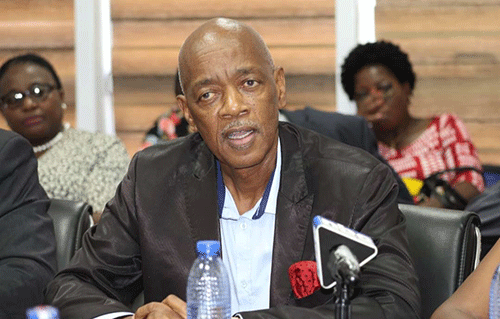The 10th of April 2024 marked the 31st anniversary of Chris Hani’s assassination.
Chris Hani (28 June 1942-10 April 1993), born Martin Thembisile Hani, was the leader of the South African Communist Party and chief of staff of uMkonto we Sizwe (MK).
He was assassinated by Janusz Walus, a Polish far-right anti-communist immigrant, in 1993 during the transition to democratic rule in South Africa. Serious tensions followed the assassination, with fears that the country’s democratic process would be derailed by violence. Nelson Mandela addressed the nation, appealing for calm, and his outstanding leadership qualities saved the day when the country was on the brink of violence. Hani joined the African National Congress (ANC) youth league at the tender age of 15, and he was active in student politics.
Following his graduation from Rhodes University in 1962, he joined MK, the armed wing of the ANC.
Following his arrest under the Suppression of Communism Act, he went into exile in Lesotho in 1963, where he was organising guerrilla operations of the MK in South
Africa.
It was during that time that he adopted the name Chris as his nom de guerre [combat name]. He eventually moved to the ANC's headquarters in Lusaka, Zambia.
Hani received military training in the Soviet Union, and served in military campaigns in the Zimbabwean War of Liberation.
These were joint operations between MK and the Zimbabwe People's Revolutionary Army (ZIPRA) in the late 1960s.
His role as a fearless fighter from the earliest days of MK propelled him into the position of MK's deputy commander, deputising Joe Modise. He permanently returned to South Africa following the unbanning of the ANC in 1990, and took over from the ailing Joe Slovo as head of the South African Communist Party on 8 December 1991. By that time, he had become prominent enough to have become the target of assassination attempts. Why were communist ideals appealing to young radicals like Chris Hani and others in South Africa and Namibia? It was clear that Apartheid oppression in both countries was part of a bigger problem. That problem was exploitative capitalist production relations, which were underpinned by an Apartheid state that made cheap black labour readily available to white capital, enabling the latter to make super-profits. A socialist revolution was regarded as the only alternative to the white settler capitalist state that “hid behind Apartheid”.
That was why the ideal of an egalitarian society that communism promises was so appealing to most of us.
During the Cold War era, the socialist countries were actively supporting the liberation movements in Southern Africa. The rank-and-file members of these movements also got exposed to the communist ideology because some of them went to these countries for military training, while others went there for university studies. However, by the time Namibia gained independence in 1990 and South Africa transited to democratic rule in 1994, there was a re-configuration of the global system.
After the collapse of the Soviet Union and other socialist states in Eastern and Central Europe in the 1990s, socialism, as an international project, was forced on the back foot.
Unlike the Cold War period, which was characterised by superpower rivalry between the US and the Soviet Union in a bipolarised international system – pitching multiparty democracy and capitalism on the one hand against socialism and one-party rule on the other – by the mid-nineties, the world was completely different.
Multi-party democracy and neo-liberal economic policies have now gained international currency as the two core sets of norms underpinning what has come to be known as the
good governance paradigm.
What then went wrong with the socialist project in Eastern and Central Europe?
What was supposed to be the dictatorship of the proletariat [working class] became the dictatorship of the Communist Party. The Communist Party was the only party that was allowed, and it became a monster unto itself that became alienated from the working class and other strata in society. No free trade unions were allowed, and the trade unions needed to be affiliated to the Communist Party. All print and electronic media were controlled by the state. All of this led to the suffocation of free competition of ideas. At the economic level, the means of production were owned and run by the state, which led to inefficiency because the state had a monopoly and there was no competition. Those socialist states that were culturally heterogeneous never managed to resolve the National Question (in socialist thought, the National Question deals with the right of nationalities and/or ethnic groups to determine their own destiny within a nation-state where they live). The accumulative effect was, without the free competition of ideas, the political system became bottle-necked and somewhere, something had to give – and something did give. The system collapsed.
In my book, external pressure from the capitalist West on these countries only constituted secondary contradictions, while the internal contradictions were primary and were thus the main cause of the collapse.


